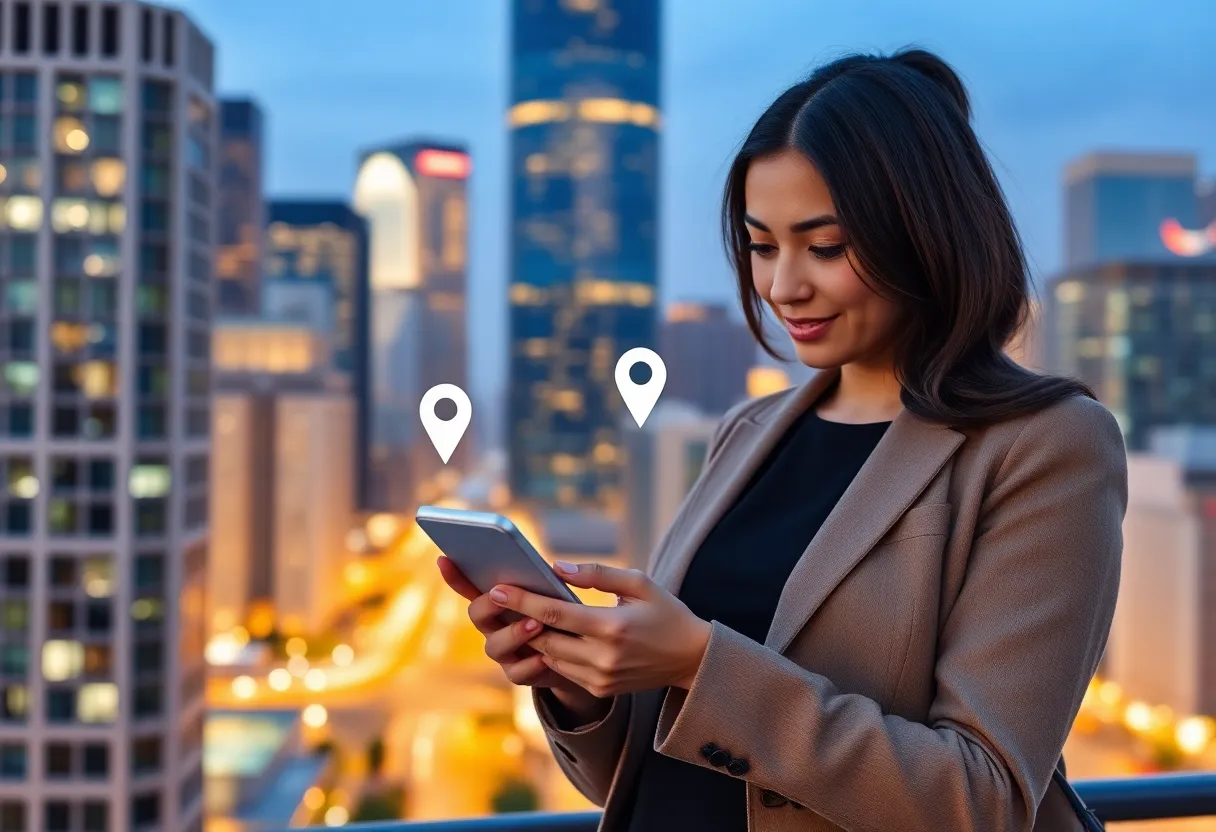How Can You Use Geofencing to Connect with Your Local Audience in Digital Marketing?
In today’s fast-paced digital landscape, connecting with local audiences has become crucial for businesses striving to enhance their marketing strategies. Geofencing is one of the most innovative tools available, allowing businesses to create virtual boundaries that trigger specific marketing actions when potential customers enter defined geographic areas. This article delves into how businesses can effectively leverage geofencing to connect with their local audience through digital marketing efforts.
Understanding Geofencing
At its core, geofencing is a location-based service that leverages GPS, RFID, Wi-Fi, or cellular data to define geographical boundaries. When a person enters this ‘fenced’ area, they can receive digital notifications or alerts including advertisements, promotions, or reminders. This technology has unlocked new possibilities for targeted marketing, enhancing the way businesses engage with their customers.
The Mechanics of Geofencing
Geofencing typically involves the following components:
- Geographic Boundaries: These can be drawn around points of interest, neighborhoods, or specific locations.
- Targeted Audience: Businesses can focus their marketing strategies on users who are within a designated area.
- Real-Time Data: The technology allows for instant updates, making it possible to send alerts as users move in and out of the geofenced areas.
Understanding these components is essential for businesses that aim to utilize geofencing effectively in their digital marketing strategy.
Benefits of Geofencing in Local Digital Marketing
Enhanced Targeting
Geofencing allows businesses to narrow their focus to specific audiences. By identifying and segmenting potential customers based on their geographical location, businesses can tailor their messages, ensuring that the information they send is relevant to recipients. This targeted approach increases the effectiveness of marketing campaigns.
Real-Time Engagement
Immediate interaction is one of the critical benefits of geofencing. As customers enter or leave a designated area, businesses can deliver real-time notifications. This becomes particularly beneficial during events, promotions, or seasonal sales. A well-timed notification can significantly influence consumer behavior, leading to increased foot traffic and sales.
Data Collection and Analysis
An integral part of any successful marketing strategy is data. Geofencing provides businesses with valuable insights into customer behaviors and preferences. By analyzing data collected from geofenced marketing efforts, businesses can identify trends, measure campaign effectiveness, and refine their marketing strategies accordingly.
Implementing Geofencing in Your Digital Marketing Strategy
Setting Up Geofences
To effectively implement geofencing, organizations must first define their target areas. This may involve drawing virtual fences around:
- Store locations
- Competitors’ premises
- Event venues
Businesses should consider the specifics of their audience when establishing these boundaries. The location should reflect where potential customers are likely to be found.
Choosing the Right Geofencing Technology
Various geofencing platforms and technologies exist, each with its unique features. Businesses should assess their needs and select a service provider that aligns with their marketing goals. Factors to consider include ease of use, integration capabilities, and reporting features.
Crafting Targeted Messaging
For geofencing to be effective, the messaging must be compelling and relevant. Strategies may include:
- Promotional Offers: Providing discounts, coupons, or special offers to entice customers.
- Event Announcements: Informing potential customers about upcoming events or store openings.
- Localized Information: Tailoring content to reflect community interests or local events.
The key is to ensure that messaging resonates with the audience, making it both engaging and actionable.
Case Studies: Successful Use of Geofencing in Local Marketing
Retail Businesses
Many retail brands utilize geofencing to send promotional alerts when customers are near their stores. For example, a clothing retailer might offer a discount to anyone coming within a half-mile radius. This strategy drives foot traffic and boosts sales.
Restaurants
Restaurants frequently leverage geofencing to reach nearby patrons. By sending enticing promotions or reminders about happy hour specials to users within their vicinity, they can attract new customers while encouraging repeat visits.
Event Marketing
During local events, organizations can deploy geofencing to target attendees. This could involve sending out special offers related to the event, such as discounts on food or merchandise. Such targeted messaging can enhance event experience and stimulate sales.
Best Practices for Geofencing Marketing
Respect User Privacy
As with any digital marketing strategy, user privacy is paramount. Businesses should always acquire consent before collecting location data. Transparency about data usage can build trust between the brand and its audience.
Test and Optimize
Initially launching a geofencing campaign may not yield perfect results. Continuous testing and optimization are essential. Businesses should analyze customer responses and adjust messaging, boundaries, and timing for maximum impact.
Combine with Other Marketing Strategies
Geofencing works best when combined with other marketing strategies. For example, integrating social media campaigns with geofencing can amplify reach and engagement. Online advertisements can be tailored to reach users within geofenced areas, creating a cohesive marketing approach.
The Future of Geofencing in Digital Marketing
The landscape of digital marketing is continuously evolving. As technology advances, geofencing is likely to become even more sophisticated. Increased integration with artificial intelligence and machine learning could lead to more efficient targeting and enhanced customer experiences.
Additionally, as location-based technologies improve, businesses may explore innovative interactive experiences. For instance, augmented reality could be combined with geofencing to provide immersive customer interactions that engage users beyond mere advertisements.
Conclusion
Incorporating geofencing into your digital marketing strategy offers significant opportunities for connecting with local audiences. The technology provides enhanced targeting, real-time engagement, and valuable data collection. By carefully implementing geofencing and ensuring alignment with customer interests and behaviors, businesses can foster stronger relationships with their audience. As digital marketing continues to evolve, staying ahead of trends like geofencing will empower businesses to thrive in their local markets.







